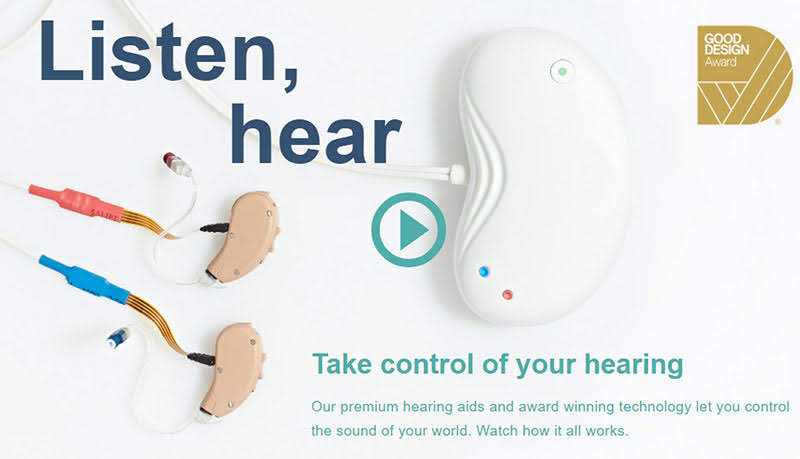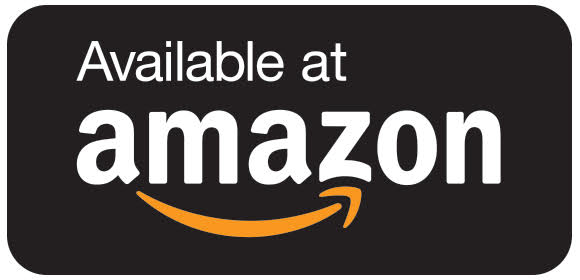There has been growing speculation in relation to Over The Counter (OTC) hearing aids being made legal in the United States. The PCAST (PRESIDENT’S COUNCIL OF ADVISORS ON SCIENCE AND TECHNOLOGY) Report in relation to hearing technology in October 2015 recommended a major change to the laws governing the supply and provision of hearing aids. One of the recommendations it made was in relation to the hearing aid medical waiver. This has now happened, what does it mean for OTC hearing aids and more importantly, what will it mean for consumers? Let's look at the background.
A Greedy Monopoly
For many years organisations in the States have been calling for changes to the rules governing hearing aid provision. The main reason for these calls has been the assumption that the high price of hearing aids has been the main block to adoption of them by the multitude of people who need them. I personally don't necessarily subscribe to that argument, I know that cost is an issue in some cases, however, I don't feel it is the general impediment that it has been painted to be.
In this debate both the manufacturers of hearing aids and the providers of hearing aids have been painted as greedy and supporting a monopoly. Unfortunately some of the representative organisations have not helped themselves with ridiculous paternalistic statements that seem to have been purposefully designed to irritate people.
Are We Greedy?
I know I am not, I would have to say the bulk of people who I know within the profession are not either. I charge for my time and service and then I deliver that time and service as I am sure many others do. The focus in this debate has been on the hearing aid as a product, it has not been on how that product is delivered and maintained. The problem though is that no matter what I say, it just looks like I am defending a monopoly.
On the 7th of December, the FDA issued the “Immediately in Effect Guidance Document: Conditions for Sale for Air-Conduction Hearing Aids,” which effectively ends federal enforcement of the hearing aid medical waiver. What does that mean for the consumer? The hearing aid medical waiver is a waiver that may be signed in lieu of having the required pre-hearing-aid-purchase medical evaluation. The wording of the original federal regulation can be seen here (21CFR801.421). In essence, it removes the need for a customer over the age of eighteen to get a medical evaluation of their hearing before deciding on hearing aids.
The FDA announcement does not change any rules regarding over-the-counter (OTC) hearing aids, but it did address them. “ FDA does intend to consider and address those recommendations in the future as appropriate, including those regarding a regulatory framework for hearing aids that can be sold directly OTC to consumers, without the requirement for consultation with a credentialed dispenser. FDA intends to solicit additional public input from stakeholders before adopting such an approach”.
In the press release ” the FDA Commissioner Robert Califf, M.D. was quoted as saying "Today’s actions are an example of the FDA considering flexible approaches to regulation that encourage innovation in areas of rapid scientific progress, The guidance will support consumer access to most hearing aids while the FDA takes the steps necessary to propose to modify our regulations to create a category of OTC hearing aids that could help many Americans improve their quality of life through better hearing.” I think that can be taken as a clear sign that with time, OTC hearing aids will become a reality.
For many years I have spoken with hearing aid advocates around the world, advocates like Steve my co author here on Know. Nearly all of them have been demanding more power over their hearing aids, the ability to make fine tuning changes themselves. I have always supported that idea, why shouldn't we make their hearing care inclusive? One thing that has always struck me during these conversations is that what they called for was inclusion in the process not the exclusion of the professional. Even the most strident and independent want the ability to consult with a professional.
Would it surprise you to find out that I would support these type of hearing devices? Because I would.

You may find it surprising but I think these types of devices are a good thing, not a bad thing. However, they will only be a good thing if certain criteria are met. The devices will need to be fitted to your loss in some way, so there needs to be some way of testing your needs either built into the device or accompanying the device. Any testing procedure needs to be able to flag referable conditions, this is an imperative.
In my career I have identified four people with cancer through a hearing test. I of course did not make that diagnosis, I simply undertook the hearing test and referred them for further investigation because I was deeply unhappy with the results. Four people who went on to have life saving treatment because of a hearing test.
Hearing loss is more often than not run of the mill hearing loss, however, sometimes it is not. Sometimes it is a sign of some underlying nefarious condition that needs treatment. This is what scares me and other people within the profession. However, good technology can probably ensure that is not an issue. I think it is incumbent upon the FDA and any other regulatory body to ensure some sort of strong regulations are in place in relation to this.
What Will it Mean For You
If new legislation is brought forward to legalise the sale of OTC hearing aids it will mean that you can go to your local point of sale and buy a hearing aid just like you would buy an electronic device. You will then have to work out how to fit it and use it flying solo as it were. I think that this type of solution will not be a fit for everyone, even within the traditional manufacturers there has been a push towards giving users more control over the hearing devices.
Not For Everyone
Not every user is interested in having the control, in fact many want something that they put on and never have to think about. These types of devices will be ideal for some and not for others. There was a recent small scale study on the efficacy of self fitted hearing aids that I reported on. The conclusions were very interesting, although the study was small, it has added some weight to the call for further study. Its conclusions were as follows
"While limited, these data suggest that self-fitting aids may provide satisfactory benefit and performance to those who can manage the self-fitting process. Our findings show that at least one currently available self-fitting product is comparable to those measured with professionally dispensed hearing aids"
What they said in essence was that were people were "able to manage" it seemed that self fitting may not be a bad thing. By able to manage they meant technically aware and able, people who were au fait or familiar with technology. In this context, I think that OTC hearing aids will be very similar, they will be ideal for people who can manage them.
The Freedom To Mess it up
These devices will also give people the freedom to make a mess of their hearing, this is another factor that the FDA needs to consider. It needs to ensure that you can't make your hearing worse through use of these devices. Again, I think technology can help here but it is an issue that needs to be raised. In essence, for these devices to be safe to use, users will need some education in relation to making them safe to use.
I have talked to others within the business for some time about adopting low cost devices that were sold on an over the counter type basis. I would adopt these types of devices, I would insist that I did a work up on your hearing or you had a workup done by someone I trust (this is to protect both you and me). I would then sell you the device for you to do with it what you wanted.
Other Assistive Devices
There are other types of devices I would also consider selling, devices like the HearPhones from BOSE. These devices are designed to help people hear in noise, they are assistive in nature, they are not hearing aids. I think they also have their place and I think it would be natural for us to offer them as solutions.

If you wanted support or help other than warranty issue I would charge you for it. I think that is fair, my time is worth money, you would not expect to attend any other professional for consultation for free, so why would you expect to do so with me? I think that this may well be the future model, I don't think the traditional model will die quite yet, I think this new model will probably run in tandem with the traditional model.
What About Traditional Manufacturers?
What will the traditional hearing aid manufacturers do if OTC come to pass? I don't know, I can't speak for them but I think they will have to re-assess their own ideas about provision channels. I don't and would not hold that against them, it is just the way of the world and of business. I know some of them wouldn't be eager to become involved, however, business is like an arms race, when one ups the game, the others must do so to survive. As well as that, many of the hearing aid manufacturers are public companies, their management teams will need to make decisions based on their share holders best interests.
What Will Be Your Experience?
I think that really depends on who makes the devices, hearing aids are a specialist electronic device. Hearing aid manufacturers are producing good devices based on years of experience and research and design. New entrants to the market don't necessarily have that experience or the algorythms that make everything work.
A hearing aid is not just a simple amplifier, it does so much more than amplify sound. So it will be interesting to see what the first OTC hearing aids are like in relation to efficacy. If the traditional manufacturers become involved in this market it will mean that there will be some pretty good devices available.
Care of The Devices
Any buyer of these types of devices will have to actually take care of them, any vendor of the device will have to consider failure of the receiver. It is pretty simple, earwax and moisture kill receivers (the speaker part) and any seller of the devices will have to be aware of that.
At the moment, traditional hearing aid manufacturers accept when your negligence (and that is often what it is) kills one of their receivers during the warranty period. They simply replace them, even when they are gummed up with ear wax.
How will that work with over the counter hearing aids? Will they continue to replace the receiver even when you have been responsible for it's failure? I mean at the moment, the hearing aid manufacturers don't actually have to, but they do it. What will OTC manufacturers do?
Making The Right Choice
I try to be very careful about the recommendation I make, I try to take into account lifestyle, personal and ear canal conditions. For instance, if you are active, able and a bit tech smart, I will easily consider a RIC device or a custom hearing aid device for you. I would base that on the fact that you can easily take care of the device, ensuring that it is maintained in order that the receiver won't fail.
If however, I think that the maintenance of the hearing aid may be a problem, or if in fact the ear canal is just too hostile (excess ear wax or moisture) I would nearly always recommend a BTE. As a purchaser of an OTC device, how are you to make the decision on that, if you make the wrong decision, what are you going to do?
Freedom
It is obvious that there are a lot of questions to answer, however I think that OTC hearing aids will bring freedom of choice, I think that can be a good thing and a bad thing. I don't think consumers are stupid, generally, well most of them. I think that delivering freedom of choice will allow people to adopt amplification earlier. Will allow them test the water as it were, to understand what amplification can deliver to their life. That has to be a good thing.
We recently published a post in relation to a new study that was undertaken in relation to Over The Counter Hearing Aids as a delivery Model versus the traditional model. It came to the conclusion that OTC may be almost as good as the traditional model. However, while the study is excellent, it really isn't as simple as that. Find out why at OTC Hearing Aids Almost as Good as Professional Fitted - New Study Says Over The Counter Hearing Aids as Good as Professionally Fitted
Posted by Geoff

Geoffrey Cooling





Geoffrey (Geoff, anything else makes him nervous) Cooling has been involved with the hearing aid industry for over ten years. He has worked in private practice dispensing hearing aids and as a manufacturer's rep. He has written two books and they are both available on Amazon. He loves technology, passing on knowledge and is legendary for many other things, primarily the amount he curses, his dry and mischievous sense of humour and his complete intolerance of people who are full of themselves. Please feel free to connect with him



